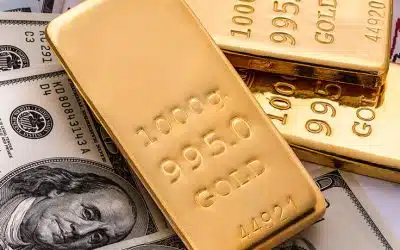Mr. Market is a Dortmund fan

Redacción Mapfre
Luis García, manager of the MAPFRE AM Behavioral Fund
In 1949, the first edition of The Intelligent Investor appeared. The book, written by Benjamin Graham, has been described by Warren Buffett himself as the best text on investing ever published. In my view, the praise is well deserved. While perhaps not a book to be recommended for beginners, it does contain chapters that are essential for any investor, introducing for the first time such important concepts as the margin of safety.
In another of these chapters, Graham draws a portrait of a character he calls Mr. Market, which he characterizes with the behavioral traits that we commonly observe in the financial markets. There are days when Mr. Market wakes up euphoric and is willing to pay high prices for any asset or business in which we offer to him.
Others, however, his frame of mind is the opposite and he just wants to sell all his shares as soon as possible, even at rock-bottom prices and without there being any reason to do so. In other words, Mr. Market forgets the difference between price (what you pay) and value (what you receive) and is simply driven by his immediate emotions.
In this brilliant way, Graham aims to explain how, in his opinion, the market behaves and how the patient investor can use this volatility to his advantage. What the father of value investing didn't tell us is that his creation, Mr. Market, was a Borussia Dortmund fan. Or, at least, he has been for the past week.
For those who are not aware, the shares of the German soccer club are listed on the stock exchange and have been on a real roller coaster ride in recent days that has had little to do with economic fundamentals and a lot to do with emotion about its sporting results. The story began two weekends ago. Borussia Dortmund's away win over Augsburg put them in a great position to end Bayern Munich's hegemony and become Bundesliga champions after more than a decade.
All they had to do was win their last home game. It looked like they couldn’t miss. So Mr. Market jumped in to celebrate in advance and Dortmund's market capitalization went through the roof. From 500 million euros to 650 million euros. However, as we explained in a note published last week, “the potential increase in revenue from winning the league, while positive and welcome, should only be marginal.” That seemed to matter little at the time to an elated Mr. Market.
But, as Woody Allen used to say, sports has such surprising endings that not even the movies could imagine them. So this weekend Dortmund lost their last home game. Together with Bayern's victory, that handed the championship to the Munich team and left Mr. Market feeling down in the dumps. On Monday, when the markets opened, Dortmund's shares fell by 30% and its market capitalization dropped by around €200 million, more than it gained the previous week.
How should the patient investor react to this madness? Was the company worth 150 million euros more because it was expected to win the title? Is it now worth 200 million less just because it failed to win the title? Well, it’s easy to see that it was neither of the above. The variation in income depending on the outcome of the match was so insignificant that it does not justify these fluctuations at all. The patient investor may have taken the opportunity to sell some shares to Mr. Market last week and is now buying them back at a much lower price.
We have been investing in Borussia Dortmund for several years now. In fact, it is the largest position within the fund. But we do not do so based on the expectation that they will or will not win the Bundesliga. In fact, it usually does not, given the strength of its rival. We invested because, in our opinion, it is a good company that is well managed and has a healthy balance sheet, and whose market capitalization has not reflected its true value for some time. Just before this sporting and stock market madness, the club had just reported an operating profit of 110 million euros for the first nine months of its fiscal year.
But that matters little now to Mr. Market, who is totally devastated by his team's defeat. He's more driven by impulses and emotions. Indeed, remember, for example, that he reacted with much more glee to rumors of a possible Cristiano Ronaldo move to Dortmund last summer than he did to the apparently imminent news of the sale of Jude Bellingham to Real Madrid for more than €100 million. Again, while the impact of the former would have been minimal, the latter will give a significant boost to the club's coffers.
Time will pass and Mr. Market will recover from the blow. He will again, as he always does, be better able to assess the company's long-term economic fundamentals. The factors that truly determine the value of an asset. In the meantime, as investors we will continue to be patient.



